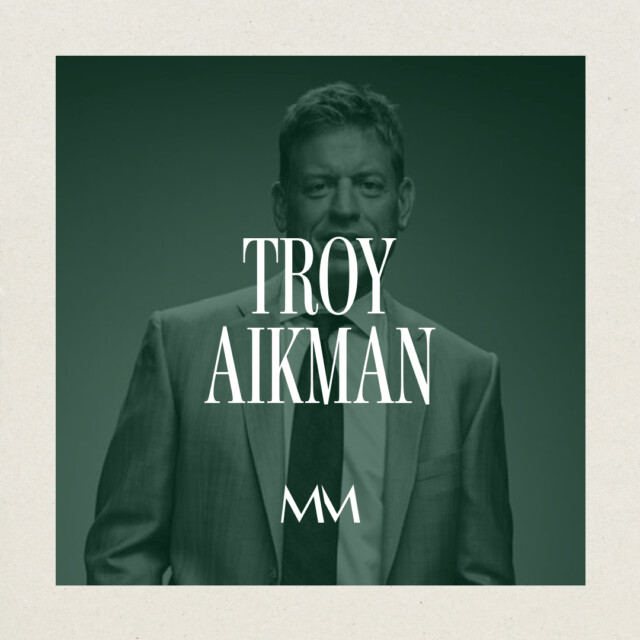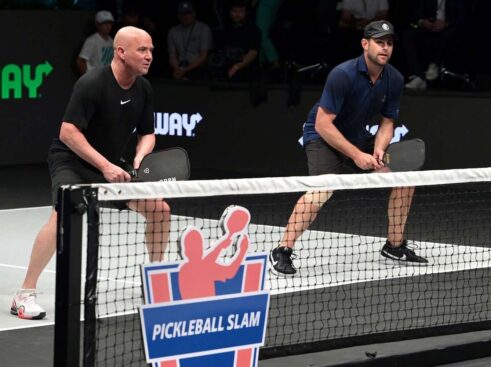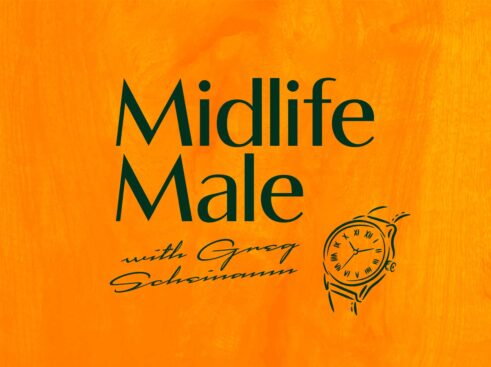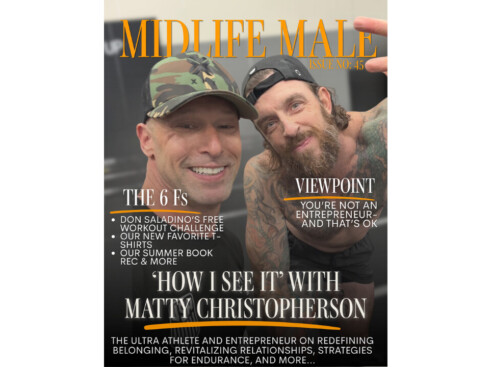Algorithms Change, People Don’t.
In a world obsessed with chasing algorithms, Jonathan Goodman reminds us of an essential truth: human nature remains constant. As the author of new book, The Obvious Choice, Goodman has mastered the art of building sustainable success by focusing on people rather than platforms. I was introduced to Goodman through Midlife Male Editor-in-Chief Jon Finkel, and his story immediately resonated with me both personally and professionally.
When we connected, Jonathan was speaking from Sayulita, Mexico—one of the international locations where he and his family spend four months of the year. As we wrapped up, he made a point to mention he was heading out for tacos. For the remaining eight months, he’s based in Canada. This lifestyle, which he’s maintained for over 13 years, exemplifies entrepreneurial freedom. Approaching 40, Jonathan has built multiple successful businesses, all of which he owns outright, giving him complete control over his time, energy, and output.
The central message of his book aligns perfectly with our mission at Midlife Male: to become the obvious choice as the leading newsletter for midlife men, by midlife men. Jonathan’s philosophy of becoming “famous to the family” focuses on building a tight-knit community that trusts and advocates for you—rather than chasing the largest possible audience. Learning from one of marketing’s brightest minds about creating lasting success by prioritizing human connections over algorithmic trends was a privilege. There’s a lot to learn from Jonathan in our interview and I encourage you to buy his book, The Obvious Choice, here.
From The Obvious Choice by Jonathan Goodman:
No matter your goals, The Obvious Choice offers 15 essential lessons on profit and success that are timeless because they prioritize the humans who buy from you, not erratic and temperamental algorithms. The central premise of the book is learning how to position yourself as the clear and trusted answer to a specific group’s problems. You don’t need to be the best at everything or chase the largest audience; you need to become the most relevant solution to your people.
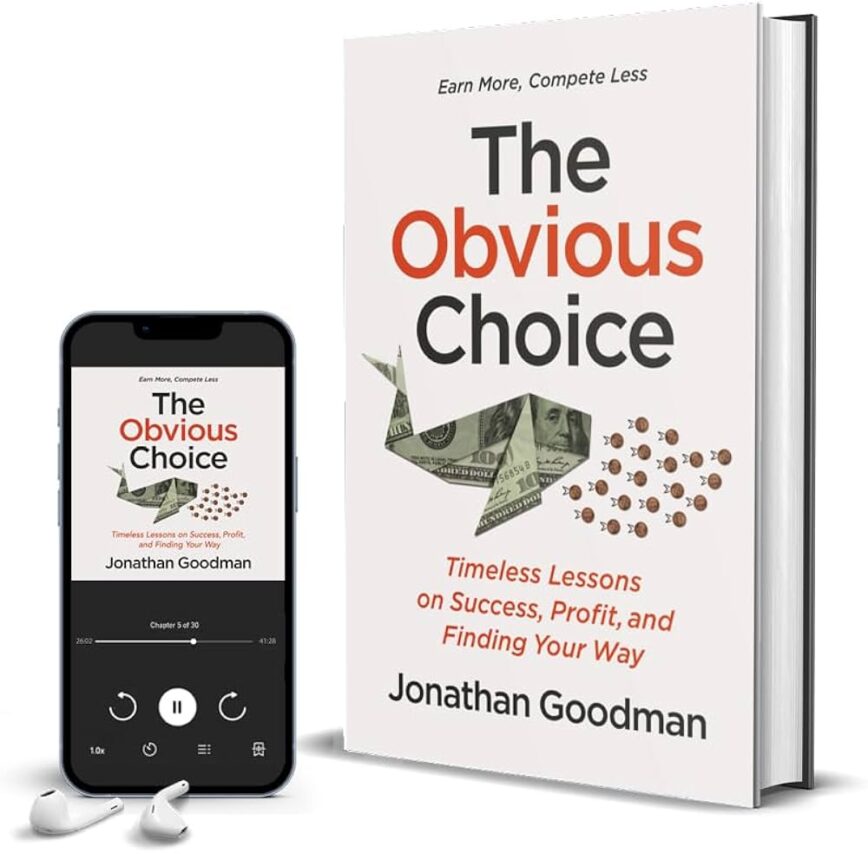
‘How I See It’ with Jonathan Goodman
MLM: Great to meet you, Jonathan! Where are you based right now?
Jonathan Goodman: I’m in Sierra Leone in Mexico.
MLM: Your journey has taken you around the world. How has travel shaped your perspective?
JG: Travel has been transformative for me. One of the most pivotal experiences was spending six months in Hawaii and Maui. I was in a tough spot—feeling unfulfilled and stuck in Toronto. I needed space to figure things out.
I rented a room off Craigslist and spent days, even weeks, in near isolation. It gave me the clarity to reassess what I wanted from life. That time helped me design a life that aligned with my values, and it laid the foundation for what I’m doing now.
MLM: Was designing your business to support that lifestyle intentional?
JG: Partly. Early on, I realized I wanted flexibility, so I focused on writing as my main platform. Writing doesn’t require high bandwidth, which means I could work from remote places.
But it wasn’t all planned. I experimented a lot—some things worked, some didn’t. I’ve always been curious and willing to try different things to see what sticks.
MLM: What advice would you give to someone looking to create their best midlife?
JG: First, figure out what really matters to you. Block out the noise and focus on designing a life that aligns with your goals and values. Second, don’t be afraid to experiment. Success often comes from trying different things and learning along the way.
MLM: Your life and career seem to embody this idea of designing life intentionally. How has your perspective on growth and purpose evolved over time?
JG: It’s interesting because so much of what we put into the world evolves as we do. My messages today are very different than they were before I had children. One of the biggest lessons I’ve learned—and it’s a chapter in my book—is understanding the difference between good information and bad advice.
There’s a lot of great information out there, but not all of it is right for you. For instance, if you’re single and in a hustle mentality, you probably won’t resonate as much with someone running a business while raising kids. Conversely, someone without a family might not understand the challenges of balancing parenthood and entrepreneurship.
You have to put the advice you consume through a filter, figuring out what applies to your unique circumstances. It’s a perspective that evolves as your priorities shift over time.
MLM: You mentioned the concept of “seasonality.” How does that apply to how you live and work?
JG: Seasonality is a huge part of how I approach life. I believe it’s natural and necessary to shift focus between the different areas of your life—whether it’s work, family, or health—at different times.
Think of life as a triangle with three arms: money, family, and health. The goal is to strengthen one arm at a time without letting the others collapse. But the key is not trying to do everything at once.
For example, if I’m in a season where I’m focusing on fitness, I’ll train six days a week, track my food, and make sleep a priority. That’s not sustainable year-round, but for 12 weeks, I can go all in. Then, once I’ve leveled up, I can return to maintenance mode, knowing I’ve built a new steady state.
I even create “off-season checklists” for areas I’m not prioritizing. For family, it might include having breakfast and dinner with my kids daily, dropping them off at school, and spending at least 15 minutes of one-on-one time with each child. It’s not about perfection—it’s about being intentional and consistent enough to maintain those relationships.
MLM: What advice would you give to men who feel stuck in routines that aren’t serving them?
JG: First, understand that you can’t optimize every aspect of life all the time. A lot of guys feel like they need to be firing on all cylinders—hitting fitness goals, crushing work, being a great husband and father—all at once. That’s simply not sustainable.
Instead, embrace the concept of “in-season” and “off-season.” Decide what area of life you’ll focus on for a period of time and give it everything you’ve got. The other areas don’t need to be ignored; they just need to be in maintenance mode.
Second, let go of guilt. When you focus on one thing, it’s natural to feel like you’re neglecting another. But knowing there’s a time and season for everything helps alleviate that.
MLM: You’ve also spoken about the importance of adult friendships. How do you approach that as part of life design?
JG: I think adult friendships are one of the most overlooked yet vital aspects of personal growth. Aristotle had a concept called the “friendship ladder,” which I’ve adapted.
At the bottom, you have parasocial friendships—like following someone online. These are one-sided but can be useful for inspiration. Above that are transactional friendships, where both parties benefit professionally or socially. Next are convenience friendships—neighbors, coworkers, or workout buddies.
At the top are “friends of virtue,” people you like for who they are and who genuinely enrich your life. These are the friends you’d go out of your way for—the ones who pass the “airport test.” If you’d pick them up at 4 a.m. from the airport, they’re probably a friend of virtue.
You don’t need a ton of friends. In fact, research shows that having just one or two good friends significantly reduces stress, improves happiness, and increases motivation. Quality matters more than quantity.
MLM: Your family’s approach to education and travel is unconventional. Can you share more about that?
JG: My wife and I decided early on to prioritize experiences and flexibility for our kids. Our oldest, who’s seven, attends public school in Toronto. But in the winters, we unenroll him and travel. Right now, we’re in Mexico.
We bring curriculum books and incorporate learning into everyday activities. For example, he’ll calculate pesos to dollars when we’re buying tacos or practice math while playing Monopoly. Beyond academics, he’s gaining confidence and social skills—things like ordering food from a street vendor or asking for extra ketchup.
I’m not saying this approach is perfect, but it works for us. At the end of the day, parenting is full of doubt and second-guessing. You just have to trust your instincts and hope the choices you make will pay off.
MLM: How does your seasonal lifestyle impact where you live and work?
JG: We spend about eight months in Toronto and four months abroad, usually in Mexico. Toronto is fast-paced and full of social commitments, which I love—until I need a break. Then, we head to Mexico, where life is slower, less scheduled, and more about being present.
In places like Sayulita, Mexico, I’ve found a deep sense of community. It’s the kind of place where you wave to people on the street, chat with the local baker, and feel connected. Those micro-interactions—just saying hello or sharing a smile—add so much richness to life.
This balance between the frenetic energy of Toronto and the calm, intentional pace of Mexico works for me. It’s not about seeing the whole world; it’s about deeply experiencing the places I choose to be.
MLM: Any final thoughts for men trying to design a better life?
JG: It’s about finding balance, but not in the way most people think. You can’t have everything all at once. Instead, focus on one area at a time, go all in, and trust that the progress you make will elevate the rest of your life.
And don’t underestimate the power of friendships, family, and community. The relationships you prioritize can make all the difference.
